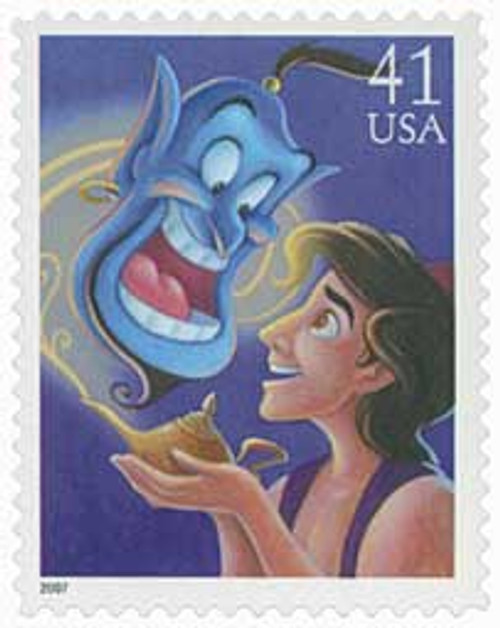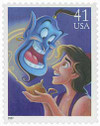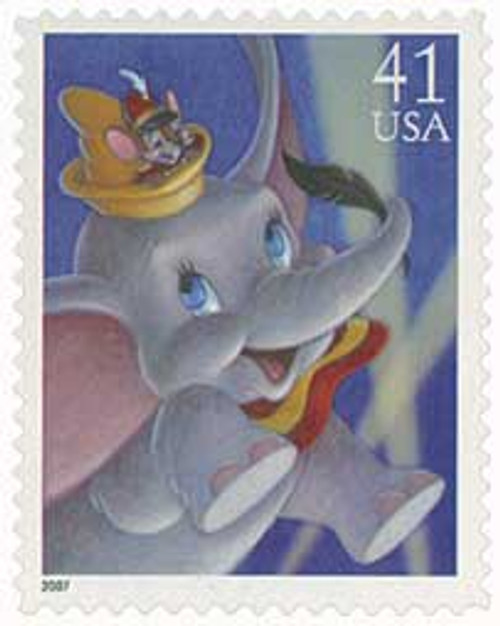
# 4195 - 2007 41c The Art of Disney, Magic: Aladdin and Genie
Art of Disney– Magic
City: Orlando, FL
Quantity: 200,00,000
Death of Maxfield Parrish
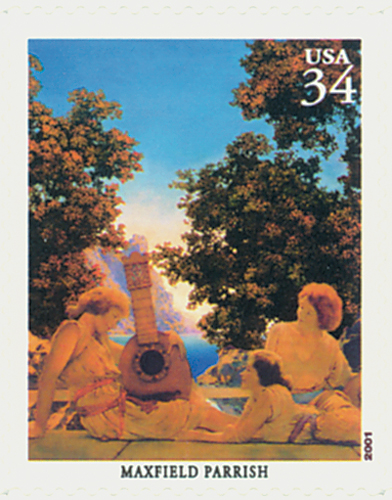
Painter and illustrator Maxfield Parrish died on March 30, 1966. He made a name for himself illustrating children’s books, murals, and magazine covers. His 1922 work Daybreak is considered the most popular art print of the 20th century.
The artist was born Frederick Parrish on July 25, 1870, in Philadelphia, Pennsylvania. He later took the name “Maxfield” from his grandmother’s maiden name. The son of a Philadelphia artist, Parrish exhibited artistic talent as a child, which his parents encouraged. In the 1880s, his family went to Europe and Parrish studied art and architecture.

After returning to the US, Parrish went the Haverford School and studied architecture at Haverford College. Parrish spent three years at the Pennsylvania Academy of Fine Arts, and then studied under Howard Pyle at Drexel Institute. A critic wrote that even in his early work, Parrish “appears to have arrived full-fledged and finished in his art.”
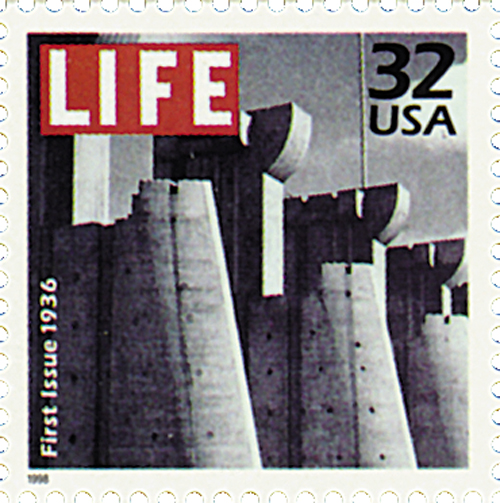
Parrish went on to have an art career that lasted for more than 50 years and is considered to have helped shape the Golden Age of illustration. He illustrated magazine covers for Harper’s Bazaar, Scribner’s, Life, Hearst’s and The Century Magazine. Parrish also produced advertising materials for Wanamaker’s Edison-Mazda Lamps, Colgate, and Oneida Cutlery.
Parrish was perhaps best known for his numerous children’s book illustrations. The fantasy life of childhood came alive with Parrish’s lush, colorful children’s book illustrations. These included Frank L. Baum’s Mother Goose in Prose (1897), E. Field’s Poems of Childhood (1904), K.D. Wiggin’s The Arabian Nights (1909), H. Hawthorne’s Lure of the Garden (1911), and many others.
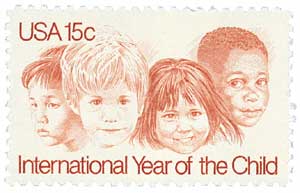
An innovative artist, Parrish perfected a technique involving numerous layers of thin, transparent oil and varnish which gave his paintings a distinctive luminosity. A particular cobalt blue became eternally associated with him, as “Maxfield Parrish blue.” He took art commissions until the 1920s. Among these was an 18-panel mural for the Curtis Publishing Company. He created a 15 by 49 foot mural of stained glass assembled by Tiffany studios that took him six years. Today it’s in the collections of the Pennsylvania Academy of Fine Arts.
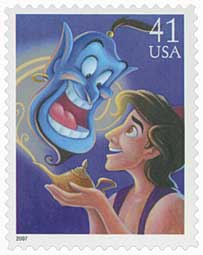
In his later years, Parrish worked less on children’s books and more on murals, posters, and calendars. His 1923 painting Daybreak is considered the most popular art print of the 20th century. It outsold Andy Warhol’s Campbell’s Soup Cans and Da Vinci’s Last Supper, and is still in print today.
Beginning in the 1930s Parrish focused largely on landscapes. He would build models of imagined landscapes, light and photograph them, and paint them from these photos. He continued to paint until he was 91, before dying on March 30, 1966. It’s been estimated he created nearly 900 works of art during his life. Parrish’s art has appeared on album covers and provided the inspiration for movie posters, music videos, comic book covers, and more.

Art of Disney– Magic
City: Orlando, FL
Quantity: 200,00,000
Death of Maxfield Parrish

Painter and illustrator Maxfield Parrish died on March 30, 1966. He made a name for himself illustrating children’s books, murals, and magazine covers. His 1922 work Daybreak is considered the most popular art print of the 20th century.
The artist was born Frederick Parrish on July 25, 1870, in Philadelphia, Pennsylvania. He later took the name “Maxfield” from his grandmother’s maiden name. The son of a Philadelphia artist, Parrish exhibited artistic talent as a child, which his parents encouraged. In the 1880s, his family went to Europe and Parrish studied art and architecture.

After returning to the US, Parrish went the Haverford School and studied architecture at Haverford College. Parrish spent three years at the Pennsylvania Academy of Fine Arts, and then studied under Howard Pyle at Drexel Institute. A critic wrote that even in his early work, Parrish “appears to have arrived full-fledged and finished in his art.”

Parrish went on to have an art career that lasted for more than 50 years and is considered to have helped shape the Golden Age of illustration. He illustrated magazine covers for Harper’s Bazaar, Scribner’s, Life, Hearst’s and The Century Magazine. Parrish also produced advertising materials for Wanamaker’s Edison-Mazda Lamps, Colgate, and Oneida Cutlery.
Parrish was perhaps best known for his numerous children’s book illustrations. The fantasy life of childhood came alive with Parrish’s lush, colorful children’s book illustrations. These included Frank L. Baum’s Mother Goose in Prose (1897), E. Field’s Poems of Childhood (1904), K.D. Wiggin’s The Arabian Nights (1909), H. Hawthorne’s Lure of the Garden (1911), and many others.

An innovative artist, Parrish perfected a technique involving numerous layers of thin, transparent oil and varnish which gave his paintings a distinctive luminosity. A particular cobalt blue became eternally associated with him, as “Maxfield Parrish blue.” He took art commissions until the 1920s. Among these was an 18-panel mural for the Curtis Publishing Company. He created a 15 by 49 foot mural of stained glass assembled by Tiffany studios that took him six years. Today it’s in the collections of the Pennsylvania Academy of Fine Arts.

In his later years, Parrish worked less on children’s books and more on murals, posters, and calendars. His 1923 painting Daybreak is considered the most popular art print of the 20th century. It outsold Andy Warhol’s Campbell’s Soup Cans and Da Vinci’s Last Supper, and is still in print today.
Beginning in the 1930s Parrish focused largely on landscapes. He would build models of imagined landscapes, light and photograph them, and paint them from these photos. He continued to paint until he was 91, before dying on March 30, 1966. It’s been estimated he created nearly 900 works of art during his life. Parrish’s art has appeared on album covers and provided the inspiration for movie posters, music videos, comic book covers, and more.


